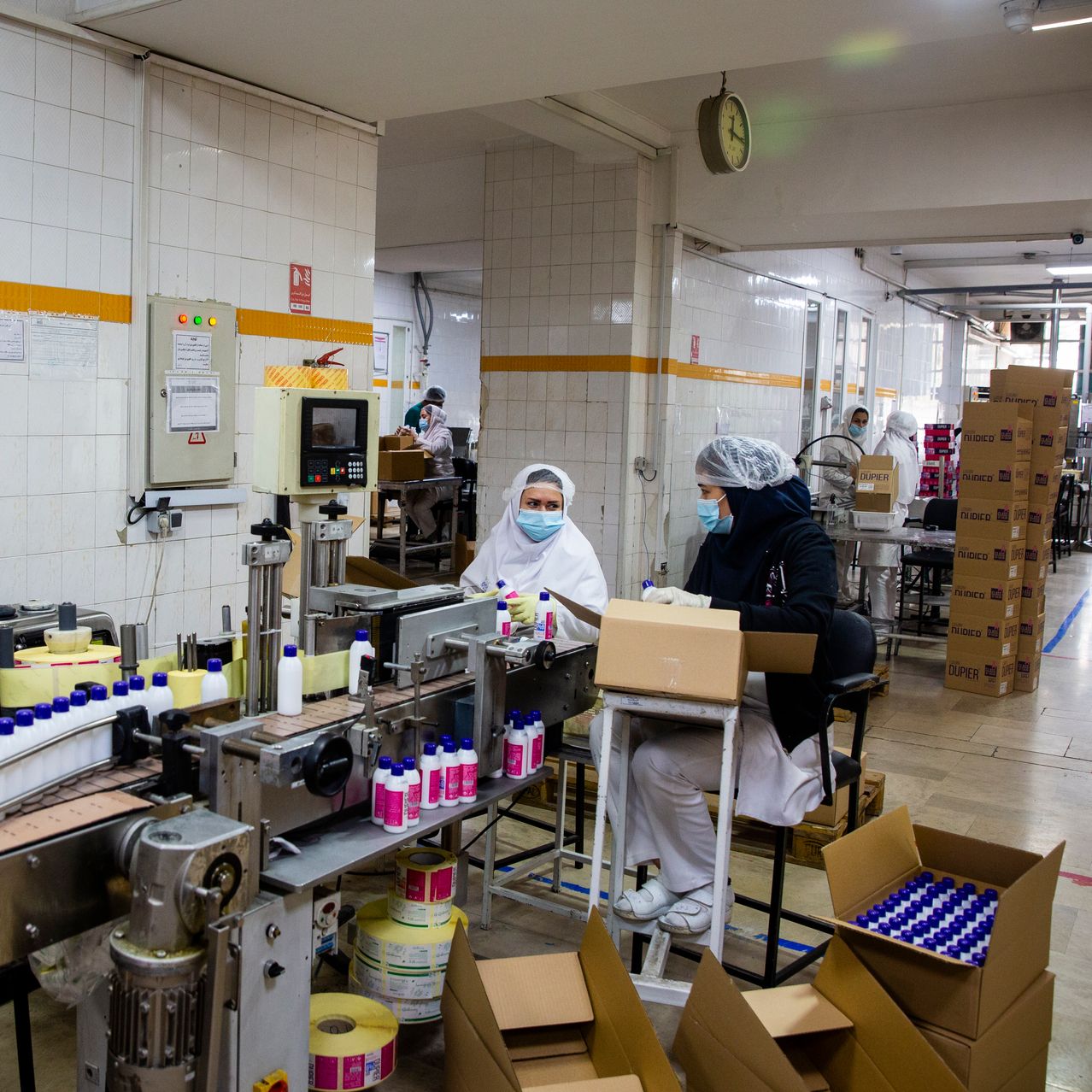The Download: In response to more than two years of U.S. sanctions, Iran is finding pockets of resilience in the sizable domestic economy. Homegrown companies are now producing goods that were once almost exclusively imported. Smaller growing businesses, meanwhile, saw an uptick in hiring. Iran’s non-oil industry’s gross revenues grew 83 percent recently, surpassing the sanctions-battered energy sector’s. Nimble small to medium-size companies are propelling the snowballing of Iranian manufacturing. About 1,000 enterprises have created 17,000 jobs, which accounts for 92 percent of Iran’s manufacturing enterprises and 45 percent of its industrial jobs.
Why It Matters: Despite the crippling U.S. sanctions and ongoing pandemic, Iran’s economy grew 1.3 percent in the six months leading to mid-September compared to last year, largely driven by domestic manufacturing.
For example, after U.S. sanctions prompted cosmetics purveyor L’Oréal to abandon acquisition talks with Zarsima Nami Rasa in 2018, the Iranian beauty supplier launched its own collection that has since replaced the French brand in Tehran’s hair salons. The company claims the domestic focus allowed it to retain 450 workers.
Iranian home appliances have also saturated the market, taking advantage of South Korean competitors LG Electronics and Samsung with the first domestically produced dishwasher, Josephine. Sales of dishwashers and washing machines have skyrocketed 40 percent and 55 percent, respectively, over the last two years, allowing the company to hire 600 workers.
In Their Own Words: “In the past three to four years, the infrastructure and technology haven’t been updated or modernized the way it should’ve been,” said Mohammad Taheri, editor in chief of Iranian economic weekly Tejarat Farda. “If the supply of cheap fuel to factories is stopped, and if they cannot mend the low-efficiency that is ruling the industry now, this situation cannot continue.”
Surface Says: The Iranian economy is weathering the country’s stormy relationship with the U.S., but that won’t last long if foreign investors continue to steer clear of Iran. This would cause the country’s capital-constrained and technology-restricted manufacturing sector to halt growth altogether.

